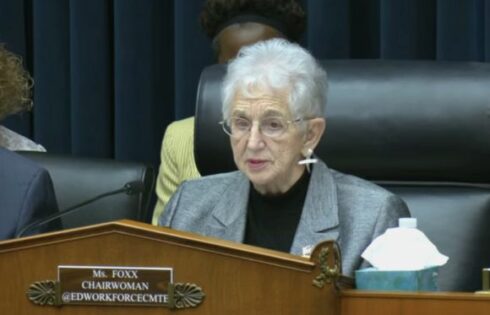
The University of Michigan’s Ford School of Public Policy will be launching a new Center for Racial Justice which, according to a university press release, will “expand knowledge about the complex intersections between race and public policy.”
It also will “create a community” of students and scholars who are engaged in social justice and racial equity work. Diversity and Social Transformation Professor Celeste Watkins-Hayes will be in charge of the new center.
According to her faculty page, Watkins-Hayes is an “internationally-recognized scholar and expert” whose research deals with the “intersection of inequality, public policy, and institutions, with a special focus on urban poverty and race, class, and gender studies.”
As usual with academy diversity matters, the language is flowery yet vacuous.
“At the Center for Racial Justice, we believe in the power of public policy to help address the societal challenges that we all face,” Watkins-Hayes says. “As we examine the fraught histories and consequences of some of our policies and the transformative power of others, we learn a valuable lesson: Effective and just public policy can only be achieved if we bring diverse perspectives to the table.”
MORE: Columbia professors want Biden to appoint a ‘Secretary of Racial Justice’
Helping with those “diverse perspectives” is a rather like-minded group of academics who will offer online lectures about the “the roots and currents of race” in several subject areas. Here are some of the invitees:
— Economics Professor Trevon Logan of Ohio State who, among other things, has researched male sex work using “econometric techniques to quantitatively test sociological theories of gender and masculinity.”
— Brown University Sociology Professor Nicole Gonzalez Van Cleve whose article “Criminal Justice through ‘Colorblind’ Lenses” is a “call-to-action” for scholars to make use of critical race theory in sociology, criminal justice, law and punishment research.
— William Darity Jr. of Duke University, founding director of that school’s Research Network on Racial and Ethnic Inequality.
— UC Berkeley’s Rucker Johnson, who says he’ll use his academic work of “fusing insights from multiple disciplinary perspectives to improve our understanding of the causes, consequences, and remedies of inequality.” His book “Children of the Dream” argues 1970s-80s school desegregation was a successful endeavor.
— Jennifer Lee of Columbia University, who has been “uniquely successful in advancing new democratic narratives of Asian Americans.” One of these is the “cultural fallacy” that Asians put a greater emphasis on education than other groups.
The center’s associate director is Dominique Adams-Santos whose research “seeks to understand how individuals navigate the racial, gender, and sexual politics of digital and urban landscapes in their search for intimacy and community.”
IMAGE: YouTube screencap




Please join the conversation about our stories on Facebook, Twitter, Instagram, Reddit, MeWe, Rumble, Gab, Minds and Gettr.